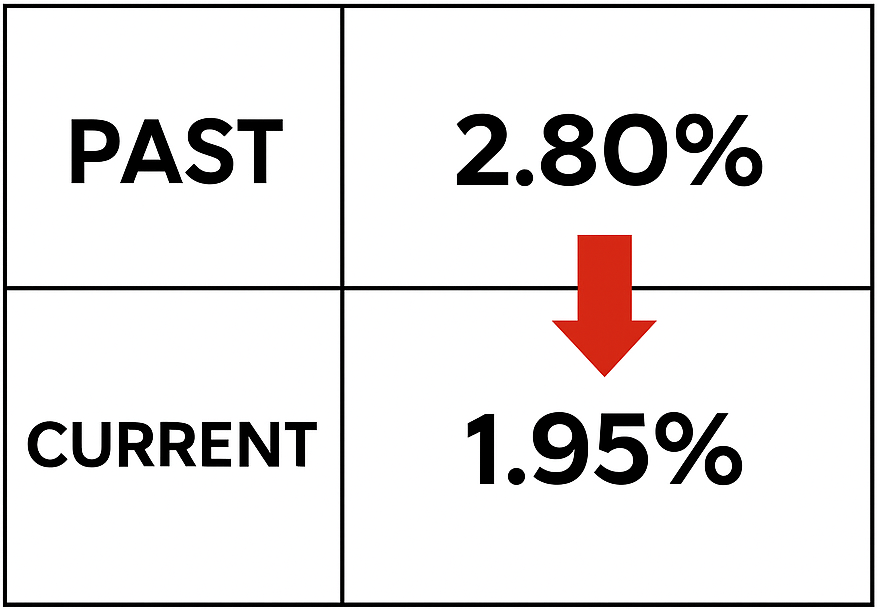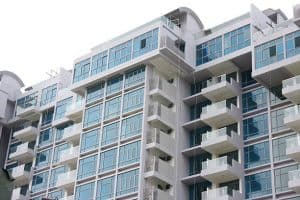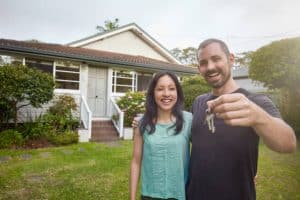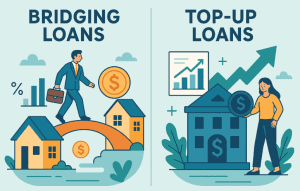Thinking of buying your first home in Singapore? It’s not just about securing a mortgage — it’s about making sure you can actually afford life after the purchase. Between loan repayments, renovation costs, and everyday expenses, budgeting smartly is key to staying financially stress-free.
In this guide, we’ll walk you through how to plan your home budget realistically, from estimating how much you can borrow to juggling lifestyle costs like transport, food, and family.
Ready to make confident, well-planned decisions? Let’s start with how much home you can really afford — and what that means for your monthly spend.
How Much Can You Afford When Buying a Home in Singapore
Before you choose a home loan in Singapore, you need to know what price range you can comfortably afford — not just based on what the bank will lend you, but also factoring in your lifestyle and long-term financial plans. Here’s how to calculate it right from the start.
What Debt Ratios (MSR & TDSR) Define Your Budget?
To understand how much of a property you can afford in Singapore, it’s essential to grasp the difference between MSR (Mortgage Servicing Ratio) and TDSR (Total Debt Servicing Ratio). These two ratios define your borrowing capacity and are applied differently depending on the type of property you’re buying.
Here’s a quick side-by-side breakdown:
Key Differences Between MSR and TDSR for Home Loan Eligibility
| Feature | MSR (Mortgage Servicing Ratio) | TDSR (Total Debt Servicing Ratio) |
|---|---|---|
| What it measures | % of income used to repay only your property loan | % of income used to repay all debt obligations |
| Applies to | HDB & EC purchases (new and resale) | All property loans (HDB, private, commercial) |
| Includes other debts | No | Yes — includes car loans, credit cards, personal loans |
| Benchmark Limit | 30% | 55% |
| Regulated By | MAS & HDB | MAS |
| Gross Income Use | Fixed income + 70% of variable income | Fixed income + 70% of variable income |
| Used For | HDB/EC loan eligibility | Loan eligibility for all property types |
In Singapore, the type of property you’re buying determines how much you can borrow.
- If you’re buying an HDB flat or Executive Condo (EC), both the Mortgage Servicing Ratio (MSR) and Total Debt Servicing Ratio (TDSR) apply.
- For private condos, only the TDSR applies — giving you more loan flexibility.
MSR limits your monthly mortgage repayment to 30% of your gross income, while TDSR caps your total debt obligations (including car loans, credit cards, and your home loan) at 55% of your income.
Expert tip: Just because TDSR allows you to borrow more for a condo doesn’t mean you should. A healthy rule of thumb? Keep your housing loan repayments under 25% of your income for more breathing room.
Not sure where you stand? Use our mortgage repayment calculator to estimate what your monthly payment could look like — based on today’s home loan interest rates in Singapore.
How to Estimate an Affordable Property Price Based on Income
A simple guideline: your total property price should not exceed 5 times your annual household income.
Let’s say you and your partner earn a combined $7,000/month. Your max mortgage limit under MSR is $2,100/month. Based on current mortgage rates in Singapore, that supports a loan of around $450,000 over 25 years — assuming an interest rate of 2.6%.
To get a clearer picture:
- Check your available CPF OA funds
- Add potential CPF housing grants (see our full CPF grant guide)
- Estimate any cash outlay for renovation or furnishings
Use our mortgage calculator to plug in real figures. And don’t forget to compare packages from different banks to secure the best home loan rates in Singapore.
What Does a Realistic BTO Budget Look Like? (Tampines Example)
Let’s say you’re eyeing a 4-room BTO flat in Tampines, priced at $420,000 (before grants). Here’s how a young couple earning $7,000/month might structure it:
BTO Budget Breakdown for a 4-Room Flat in Tampines (with CPF Grants)
| Budget Item | Estimated Amount (SGD) |
|---|---|
| Property Price | $420,000 |
| CPF Housing Grant (EHG) | –$60,000 |
| CPF OA & Cash Payment | $60,000 |
| Bank Loan (25 years @ 2.6%) | ~$300,000 |
| Monthly Repayment | ~$1,361 |
That’s well within MSR and TDSR limits, but don’t forget to budget for:
- Renovation ($25K–$35K)
- Furniture & appliances
- Emergency fund
Pro tip: Even if your loan fits within the limits, ask yourself: Can I still afford insurance, transport, and savings? Budgeting isn’t just about maxing out — it’s about living well after you get the keys.
If you’re unsure whether a BTO, resale flat, or condo suits your financial profile, speak to a mortgage advisor in Singapore to get tailored advice.
What Schemes, Grants, and Tools Make Budgeting Easier
Singapore has no shortage of support for homebuyers — but to make the most of it, you’ll need to understand which CPF housing grants, calculators, and planning resources can actually stretch your dollar. Here’s how to build a smarter home budget using tools that many first-time buyers overlook.
What CPF Housing Grants Can You Tap On?
The Ultimate HDB Grants – Summary Table
| Grant Type | BTO/SBF/Open Booking | Resale | Income Ceiling | Grant Amount |
|---|---|---|---|---|
| Enhanced CPF Housing Grants (Families) | Yes | Yes | $9,000 | Up to $80,000 |
| Enhanced CPF Housing Grants (Singles) | Yes | Yes | $4,500 | Up to $40,000 |
| CPF Housing Grants for Rental Flats | No | Yes | $14,000 | Up to $80,000 |
| Proximity Housing Grant | No | Yes | None | Up to $30,000 |
If you’re applying for a BTO flat or resale HDB, CPF grants can make a huge difference in your overall home budget.
Here are the key ones:
- Enhanced CPF Housing Grant (EHG): Up to $80,000 for first-time buyers, based on household income
- Family Grant: For resale flat buyers, up to $80,000 depending on flat size and location
- Proximity Housing Grant (PHG): Up to $30,000 for living near your parents or children
Tip: These grants are stackable — and can be used to offset your loan amount, lowering your monthly repayment.
Which Budgeting Calculators Help You Plan? (HDB, DBS, OCBC)
Don’t guess your numbers — use official tools to simulate your monthly mortgage repayment and budget planning:
- HDB Flat Budget Calculator: Estimate how much you can afford, including grants
- DBS MyHome Planner: Plan your affordability and compare loan packages
- OCBC OneAdvisor Home Planner: Check loan eligibility and simulate monthly payments
Prefer an all-in-one place to compare home loan interest rates in Singapore? Use our mortgage repayment calculator to see how bank loan packages differ across tenures and property types.
What Government Resources Should First-Time Buyers Bookmark?
Navigating your first home purchase can be overwhelming, so it helps to have reliable sources you can keep referring to:
- HDB InfoWEB: For all things BTO, resale flats, grants, income ceilings, and eligibility
- CPF Housing Overview: Understand how CPF can be used for housing and retirement
- IRAS Buyer’s Stamp Duty Calculator: Calculate stamp duties when budgeting for your upfront costs
Pro tip: Bookmark our main page for the latest on home loan rates in Singapore — and save money by comparing across banks.
How to Budget Monthly With a Mortgage in Singapore
Once you’ve secured your home loan, the real challenge begins: managing your monthly budget. It’s not just about paying your mortgage — it’s about making sure there’s still room for savings, daily expenses, and a lifestyle you enjoy. Here’s how to stay in control financially.
How Does the 50/30/20 Rule Apply to Property Owners Here?
The classic 50/30/20 budgeting rule can still work — but it needs tweaking for homeowners in Singapore:
- 50% on needs: This includes your housing loan repayments, utilities, insurance, groceries, and transport.
- 30% on wants: Dining out, travel, hobbies, subscriptions.
- 20% on savings: Emergency funds, investments, CPF top-ups.
Expert tip: If your mortgage eats up more than 25–30% of your income, adjust your “wants” category and scale back luxuries temporarily.
What Apps or Tools Help You Track Spending Effectively?

Here are some local-friendly budgeting tools that can help you stay on track:
- DBS NAV Planner: Auto-syncs spending and savings data from your DBS accounts.
- Seedly Budget Tracker: Singapore’s most popular personal finance app for expense tracking.
- OCBC Money Insights: Useful for OCBC users to monitor cash flow and set limits.
Prefer to look ahead? Use our mortgage repayment calculator to keep future payments in check based on different tenures and interest rates.
How Should You Budget With Unstable or Variable Income?
Freelancers, self-employed individuals, and commission-based earners often face greater budgeting challenges — but smart planning makes it manageable:
- Budget based on your lowest average income, not peak months. This helps avoid overextending during slower periods.
- Build a stronger emergency fund — ideally 6 months or more of essential expenses.
- Don’t stretch your loan to the limit. Just because your TDSR permits a higher amount doesn’t mean you should take it.
- Choose a fixed-rate mortgage if possible. When your income varies, predictable repayments bring peace of mind.
- Set up automatic savings transfers after each payday. This ensures you prioritise essentials even when cash flow dips.
Note: If you’re self-employed or earn variable income, lenders apply a 30% haircut to your income for TDSR and MSR calculations — meaning only 70% of your declared income is used to assess how much you can borrow.
What Are the True Hidden Costs of Owning a Home
Your home loan might cover the bulk of your property cost — but that’s only part of the picture. Many first-time buyers overlook the additional expenses that come before and after collecting the keys. If you’re not prepared, these hidden costs can quickly eat into your savings and cash flow.
What Upfront Fees Should You Prepare For (BSD, Legal, Renovation)?
Buying a home in Singapore comes with several mandatory upfront charges beyond the property price:
- Buyer’s Stamp Duty (BSD): A tax on your property purchase, calculated on a tiered basis. Use the IRAS BSD Calculator to estimate your amount.
- Legal Fees & Valuation: Usually ranges from $1,500-$2,700, depending on your law firm and loan package.
- Option Fees & Booking Fees: Especially for BTOs or new launches.
- Renovation Deposits: Condos often require deposits ($1K–$2K) before renovation work can begin.
Tip: Always buffer at least 5–7% of your property price for upfront non-loanable costs. Want to know your BSD and legal obligations? Try our Buyer’s Stamp Duty Calculator to avoid surprises.
What Ongoing Expenses Are Often Forgotten?
Once you move in, expect recurring expenses many overlook during the budgeting stage:
- Property Tax: Annual tax based on Annual Value of your property
- Fire Insurance: Required for HDB flats (from HDB or your bank); around $1.50–$100/year
- Home Insurance: Optional but highly recommended
- Town Council Fees / MCST Fees: Monthly charges for maintenance and shared facilities
- Utilities & Internet: Easily $200–$300/month for a family
Expert tip: If you’re feeling stretched even before factoring these in, you might be aiming too high. Check out our home loan comparison page to reduce your loan costs upfront.
How Can You Accurately Budget for Renovation and Furnishing?
Renovation and furnishing are not CPF-eligible — so you’ll need to plan these in cash. On average:
Average Renovation Costs for BTO, Resale HDB & Condo
| Type of Property | Renovation Budget (SGD) |
|---|---|
| BTO 3/4-room | $25,000 – $35,000 |
| Resale HDB | $40,000 – $60,000+ |
| Condo | $30,000 – $50,000 |
To avoid overspending:
- Get multiple quotes on platforms like Qanvast or RenoTalk
- Leave a 10–15% buffer for unforeseen costs (e.g. rewiring, waterproofing)
- Don’t splurge on non-essentials before settling in
Personal insight: Budget for furnishing gradually. Buy the essentials first — and upgrade slowly as you rebuild savings post-reno. For better cash flow planning, consider using our mortgage calculator to adjust your loan tenure or compare refinancing options if you’re already locked in.
How to Future-Proof Your Finances as a Homeowner
Owning a home is a long-term commitment — and life doesn’t always go according to plan. Whether it’s job changes, growing your family, or rising interest rates, it’s essential to build financial flexibility into your housing journey. Here’s how to stay ready, no matter what comes your way.
What Emergency Fund Should You Have Ready?
As a homeowner, your financial safety net needs to be larger than before. A good rule of thumb is to set aside at least 6 months’ worth of essential expenses, including:
- Mortgage repayments
- Utility bills
- Groceries and basic transport
- Insurance premiums
Tip: Keep your emergency fund in a separate high-interest savings account or fixed deposit. Avoid using CPF OA as your sole buffer — it’s not immediately liquid. If your current mortgage loan in Singapore feels tight, it might be worth checking the latest housing loan interest rates to see if you’re overpaying.
How to Adjust Your Budget for Life Changes (Kids, Job Switch)?
Major milestones like having children or switching jobs can completely shift your monthly budget. Here’s how to stay ahead:
- Review and update your budget every 6–12 months
- Re-calculate your affordability if your income changes
- Factor in childcare, education, transport, or insurance upgrades
- Reduce discretionary spending temporarily while adjusting to new costs
Personal insight: Most people only adjust their housing budget once — during the purchase. But your mortgage stays with you for decades, so review it as your life evolves.
You can also revisit our guide on CPF housing grants if you’re planning to upgrade or move closer to family.
When Should You Consider Refinancing or Restructuring Your Loan?
With interest rates rising and falling, it’s worth checking in on your mortgage every few years. You should consider refinancing your home loan in Singapore if:
- Your lock-in period has ended
- You’re paying more than the current fixed or floating rates
- You want to switch loan type for better cash flow
- You need to extend tenure for lower monthly payments
Expert tip: Refinancing could save you tens of thousands over your loan tenure — but only if done right. Speak with a trusted mortgage broker in Singapore to get personalised advice.
Final Thoughts: Plan Smart and Secure Your Ideal Home Loan in Singapore
Budgeting for a home in Singapore isn’t just about qualifying for a loan — it’s about building a lifestyle you can sustain. From understanding your MSR and TDSR limits, to tapping into CPF housing grants, and preparing for hidden costs like renovation and taxes, every step matters.
As your life evolves, so should your financial game plan. Whether you’re budgeting for your first BTO, planning a refinance, or exploring different home loan interest rates in Singapore, the smartest buyers stay one step ahead.
For more guides like this, visit our blog or check the latest home loan Singapore rates to make a confident, well-informed decision.














